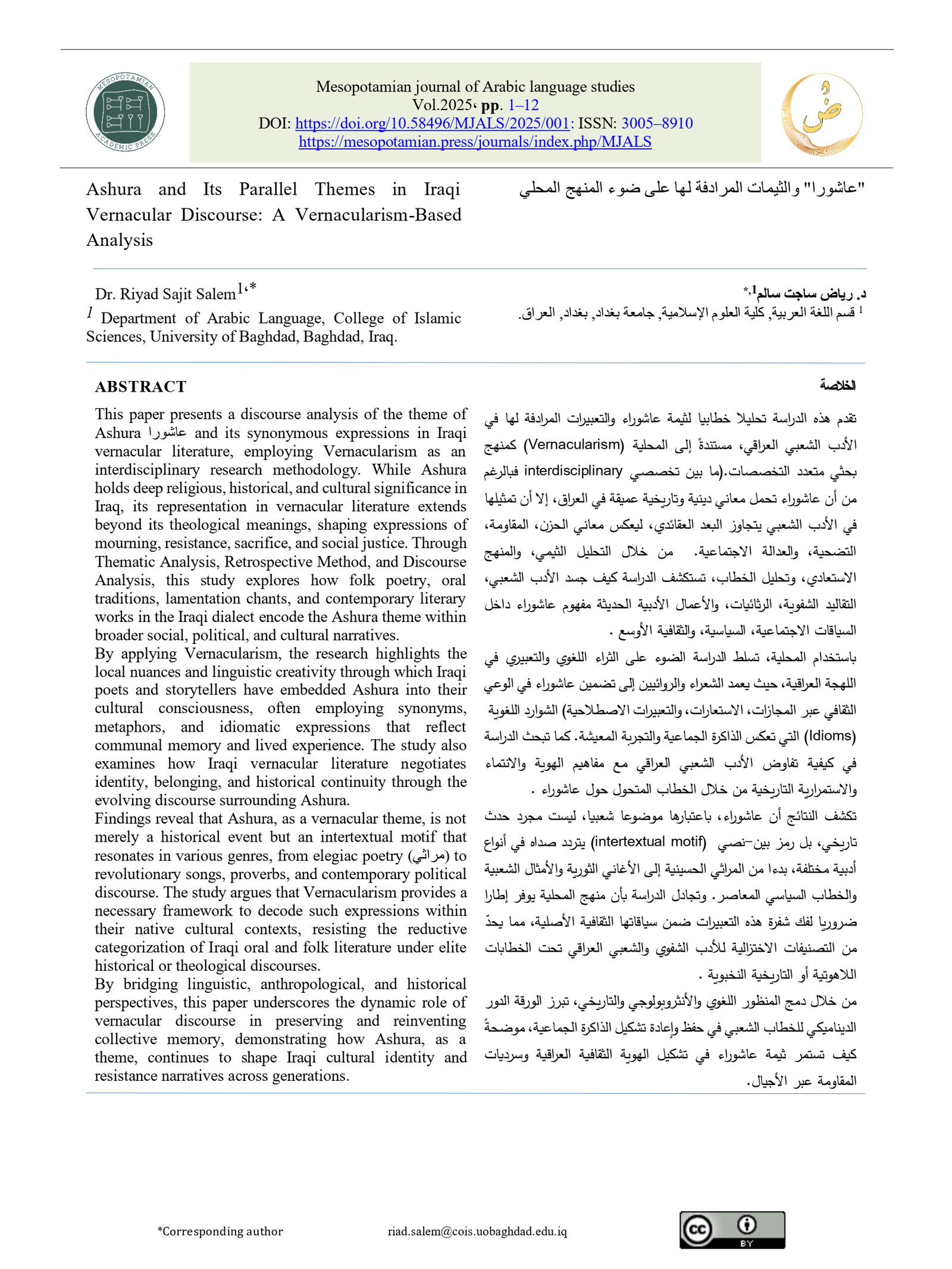Ashura and Its Parallel Themes in Iraqi Vernacular Discourse: A Vernacularism-Based Analysis
Main Article Content
Abstract
This paper presents a discourse analysis of the theme of Ashura عاشورا and its synonymous expressions in Iraqi vernacular literature, employing Vernacularism as an interdisciplinary research methodology. While Ashura holds deep religious, historical, and cultural significance in Iraq, its representation in vernacular literature extends beyond its theological meanings, shaping expressions of mourning, resistance, sacrifice, and social justice. Through Thematic Analysis, Retrospective Method, and Discourse Analysis, this study explores how folk poetry, oral traditions, lamentation chants, and contemporary literary works in the Iraqi dialect encode the Ashura theme within broader social, political, and cultural narratives.
By applying Vernacularism, the research highlights the local nuances and linguistic creativity through which Iraqi poets and storytellers have embedded Ashura into their cultural consciousness, often employing synonyms, metaphors, and idiomatic expressions that reflect communal memory and lived experience. The study also examines how Iraqi vernacular literature negotiates identity, belonging, and historical continuity through the evolving discourse surrounding Ashura.
Findings reveal that Ashura, as a vernacular theme, is not merely a historical event but an intertextual motif that resonates in various genres, from elegiac poetry (مراثي) to revolutionary songs, proverbs, and contemporary political discourse. The study argues that Vernacularism provides a necessary framework to decode such expressions within their native cultural contexts, resisting the reductive categorization of Iraqi oral and folk literature under elite historical or theological discourses.
By bridging linguistic, anthropological, and historical perspectives, this paper underscores the dynamic role of vernacular discourse in preserving and reinventing collective memory, demonstrating how Ashura, as a theme, continues to shape Iraqi cultural identity and resistance narratives across generations
Article Details
Section

This work is licensed under a Creative Commons Attribution 4.0 International License.
